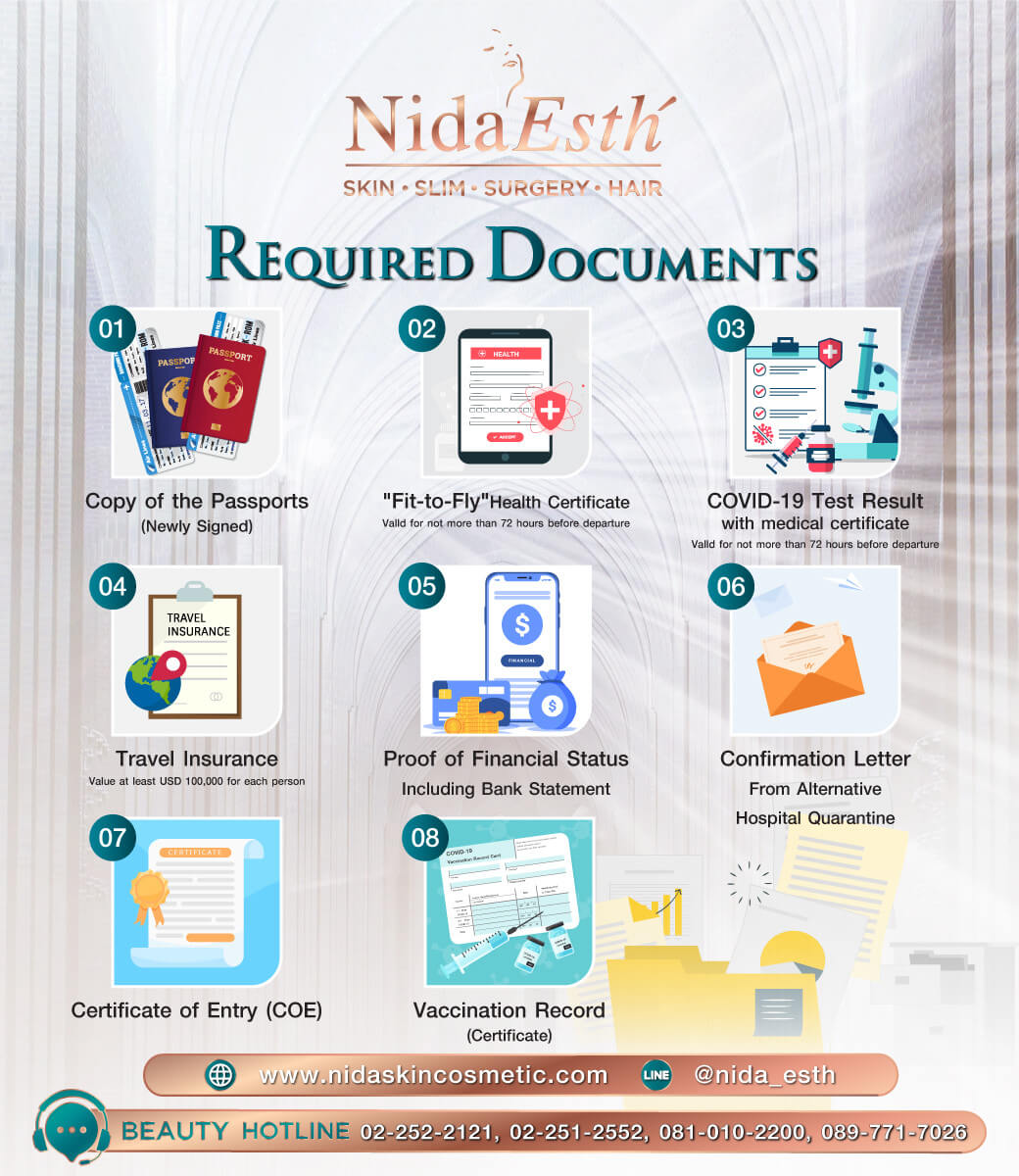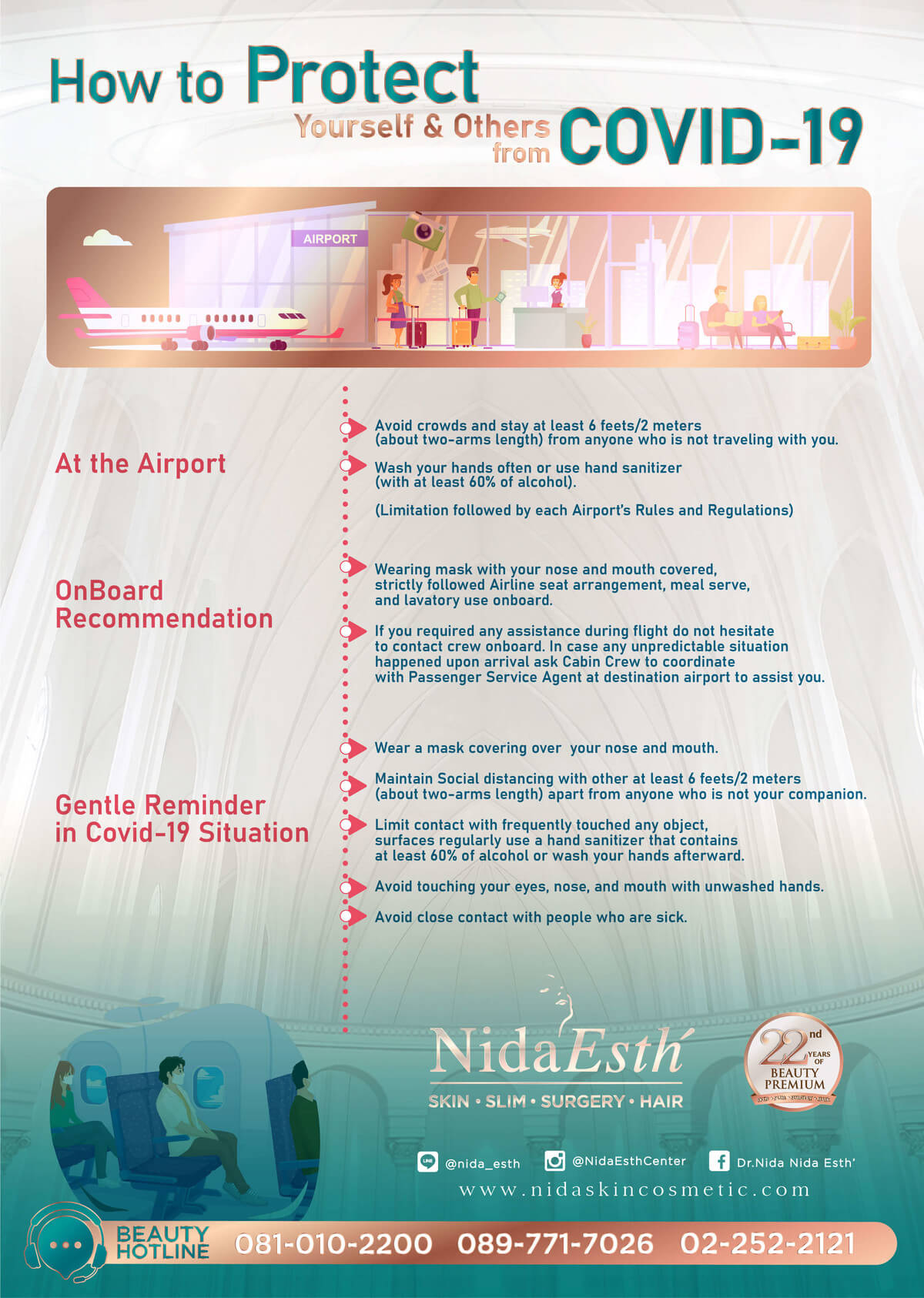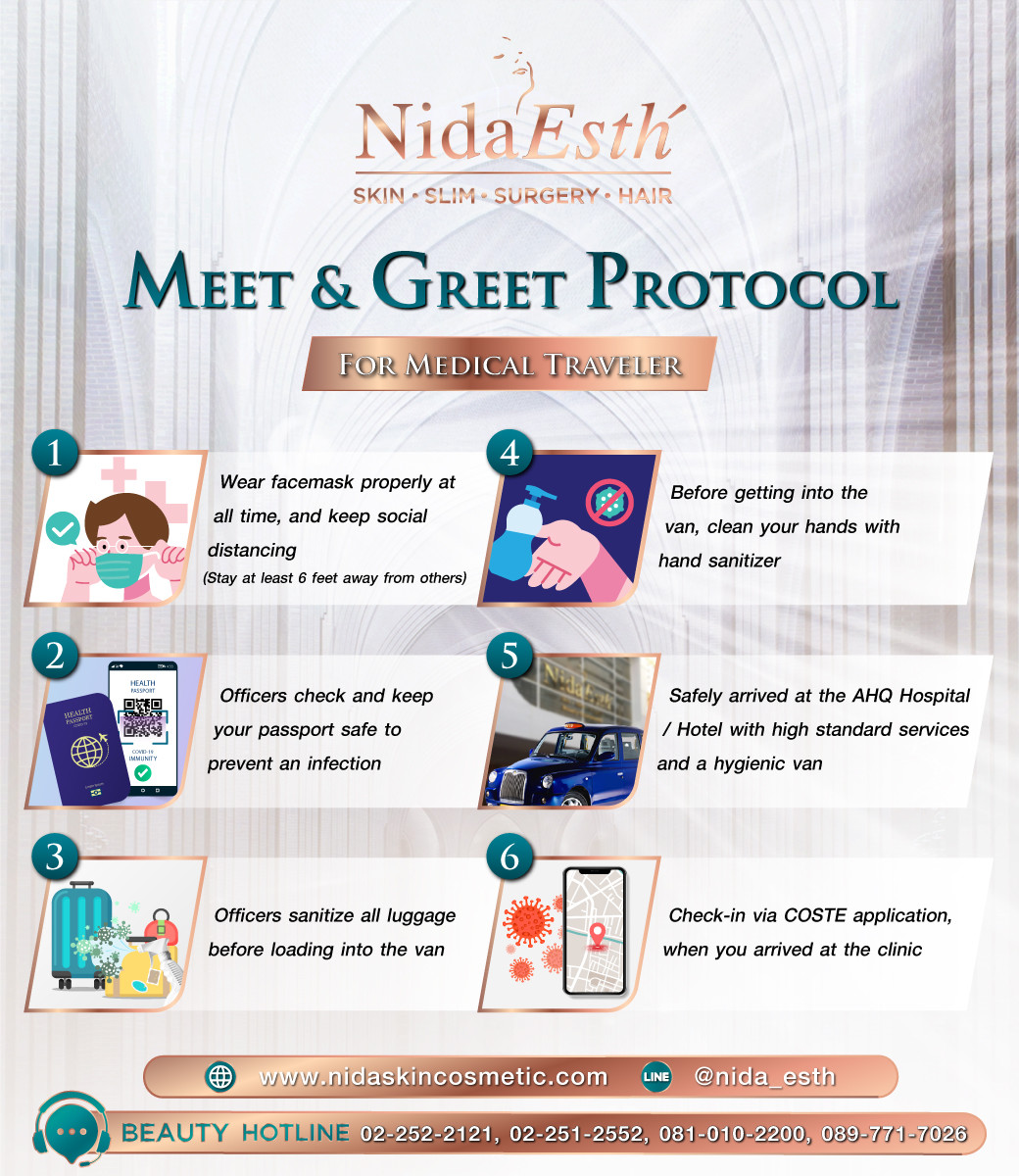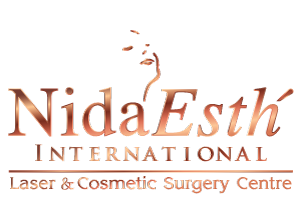PATIENT AND COMPANION GUIDELINE
Our International Coordination Team provides document services for your arrival.
Required documents
- Medical Certificate: A medical certificate is a written statement from a physician which is issued for a variety of reasons including certification of a patient’s illness, certification of a customer fitness, or certification of a patient’s recovery from a medical condition.
- Fit to fly Certificate: Some airlines require a medical letter/certificate confirming that the patient’s medical condition is currently stable and suitable to travel.
- Medical Records: Medical records are information concerning a patient’s health care such as recent doctor visits, discharge summaries, medications, allergies, and lab results
- Insurance reimbursement papers: Such as the medical certificate, medical records, and receipts along with the detailed information. https://www.thaiembassy.com/travel-to-thailand/covid-19-insurance-for-thailand
- 5.Must be fully vaccinated against COVID-19 with a vaccine registered with the Food and Drug Administration of Thailand (FDA), or approved by World Health Organization (WHO) or Ministry of Public Health of Thailand no less than 14 days before departure. Travellers must show Certificate of Vaccination issued by a goverment authority. https://thaiembassy.at/en/coe.html

Check your passport:
Your passport needs to be valid at least 6 months before travelling date.
- Purchase travel insurance to make your vacation more pleasurable and to protect you from unexpected events such as flights cancellation, delayed flights, lost baggage, emergency on board, theft, and so on. Make sure the insurance you choose covers any particular medical requirements you may have while traveling.
- Financial matters: Plan how you will finance your medical payment for your treatment, such as cash, Credit card or Traveller's Cheque, and make sure you have additional cash in the local currency. Before going abroad, notify your bank and your credit card companies of your medical travel, to prevent banks from treating the transaction as suspicious and restricting your account.
- Keep important medical documents with you: Keep all of your medications in your hand luggage. Copies of any tests, x-rays, CT scan or any imaging diagnosis outcomes, your blood test or medical histories relating to your medical problem. A medical summary is very helpful to pack in case of any emergency during your travels.
- Check the weather forecast of your destination.
- Check if it is necessary for you to get certain vaccinations.
- Once you have purchased your flight tickets, make sure you have sent the itinerary to those will pick you up from the airport.
- Required documents.
- Ensure that you have contact details of your healthcare provider, your assistance or your transport provider.
- Copies of your passport and immunization records is required, keep them in a separate location. In case of lost passports, it is much easier to get a replacement of your passport if you have a copy.
Country Risk
See the country risk analysis provided by Coface.
http://www.coface.com/Economic-Studies-and-Country-Risks/Thailand

What should I take with myself?
- Mobile phone with a charger. During your stay in Thailand, you will need to purchase a Thai SIM card in order to download and register the COSTE daily monitoring and tracking program.
- Personal documents such as ID card, passport and visa.
- Credit/debit card and some additional cash in the correct local currency.
- If you have any daily medications, keep them in their original packaging. Also any type of information regarding any chronic diseases that you may have.
- Medical records, including current diagnosis, films (X-ray, MRI, CT scan, ultrasound), biopsy results and your contact information.
- Items for entertainment purposes during your medical travel trip; for example, books, music players.
- A basic set of toiletries such as soap, shampoo, toothbrush and toothpaste, shaving kit, deodorant, sanitary napkins.
- A set of clothes in case of receiving physiotherapy and rehabilitation, if required after surgery; this may include a tracksuit and a pair of sneakers.
- Sleep essentials such as pajamas, earplugs and your favorite small pillow or blanket
How to Protect Yourself & Others from COVID-19
Recommendation for your travel by related info from Center of Disease Control and Prevention (CDC)
https://www.cdc.gov
Regulations from Kingdom of Thailand for disease prevention
https://ddc.moph.go.th/viralpneumonia/eng/index.php
Amazing Thailand Safety & Health Administration standard (SHA)
https://www.thailandsha.com/index#Infomation
World Health Organization (WHO)
https://www.who.int/emergencies/diseases/novel-coronavirus-2019/advice-for-public

At the airport
Avoid crowds and stay at least 6 feet/2 meters (about 2 arm lengths) from anyone who is not traveling with you.
Wash your hands often or use hand sanitizer (with at least 60% alcohol). (Limitation followed by each Airport’s Rules and Regulation)
Onboard Recommendation
Wearing mask with your nose and mouth covered, strictly followed Airline seat arrangement, meal serve, and lavatory use onboard. If you required any assistance during flight do not hesitate to contact crew onboard. In case any unpredictable situation happened upon arrival ask Cabin Crew to coordinate with Passenger Service Agent at destination airport to assist you.
Gentle Reminder in Covid-19 Situation
- Wear a mask covering over your nose and mouth.
- Maintain Social distancing with other at least 6 feet/2 meters (about 2 arm lengths) apart from anyone who is not your companion.
- Limit contact with frequently touched any object, surfaces regularly use a hand sanitiser that contains at least 60% alcohol or wash your hands afterward.
- Avoid touching your eyes, nose, and mouth with unwashed hands.
- Avoid close contact with people who are sic

Guidelines and Standard Operation Procedure for
“Meet and Greet Protocol”
assigned staff who will pick up the patient at Quarantine Hospital to Nida Esth’
- The staffs wearing full PPE together with Nida Esth’ Medical Center Sign
- The staffs first identify self and welcome patient, and do a temperature check
- After welcoming, the staff will instructed how to behave in a duration of Medical Tourism Program also inform duration of the trip and how to do during a transport.
- Use 70% alcohol to sanitize hands is a must prior to get into the vehicle.
- The staff will use 70% alcohol spray to sanitize patient’s luggages
- The staff must be sit in a vehicle at least 1 meter away from each patients including patient companions
- The staff must be used an alcohol spray to sanitize the vehicle door handles and closed the door properly before departure
- Scan to leave your transportation service feedback please be assured that all answers will be strictly confidential



